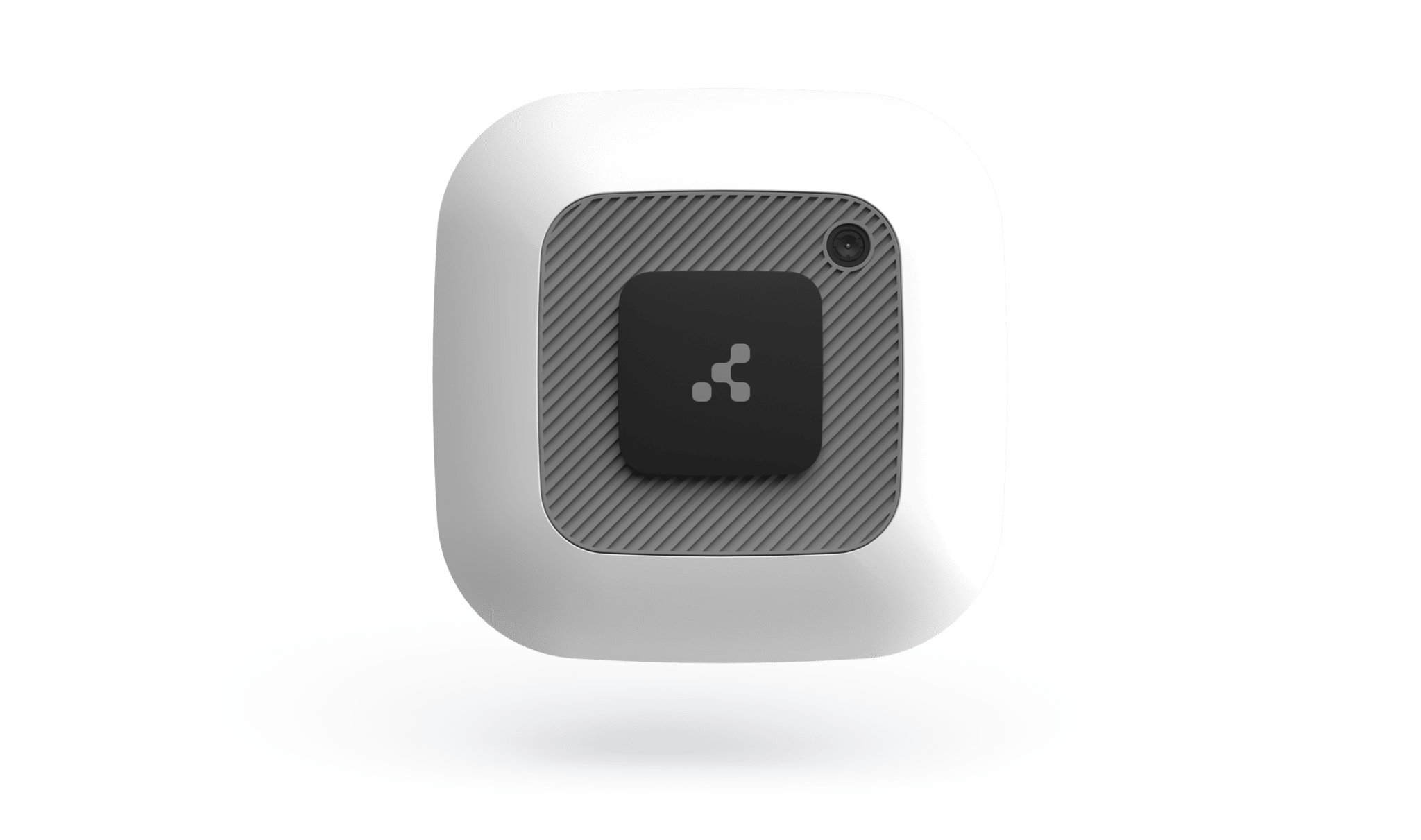
For healthcare providers, improving quality of care, reducing costs, and increasing patient satisfaction are primary objectives. In this regard, ineffective medical device management is arguably one of the biggest challenges.
It reduces staff productivity, increases costs, and reduces asset utilization. Fortunately, Bluetooth Low Energy (BLE) in medical devices is emerging as the ideal solution.
Read on to learn how you can leverage WiFi and BLE for efficient medical device management and how Kontakt.io is leading the path in room-level certainty solutions.
Despite the key role medical devices play in delivering care to patients, there are significant challenges when it comes to managing them. As a result, this affects different aspects of healthcare delivery such as:
A strong majority of doctors point to burdensome administrative obligations as a primary source of burnout. Roughly a third indicate long hours as a reason and a small percentage cites the stress of dealing with the Covid-19 epidemic. In February 2020, a study found that Ob-Gyn clinicians in the U.S. had some of the highest burnout rates among physicians, with the leading factor being bureaucratic tasks like paperwork, charting, and patient data capture. But when technology works for clinicians by surfacing actionable data on command, healthcare has a stronger chance to hold on to the people who keep the system running smoothly.
Due to the challenges of locating medical devices, nurses and EVS spend a lot of time searching for them. At best, it reduces their productivity, and in other cases, devices get lost.
Tracking devices are also a challenge for BioMed engineers. As such, maintaining devices to ensure they retain 100% PM compliance as required by the joint commission, is tedious.
When BioMed engineers and nurses look for devices manually, they lose a lot of manhours that would otherwise be used to perform their roles.
With poor medical device management also comes poor asset utilization, resulting in perceived shortages. As such, you may have adequate medical devices to cater to patients' needs. However, due to the inability to track them in real-time, and with room-level certainty, they may not be available for use when needed. This is especially common with devices like IV pumps.
Due to poor asset utilization, medical facilities often find themselves restocking even when it's not necessary. Along with the rise in procurement expenditure, they also incur additional maintenance costs, all of which are unnecessary.
For medical facilities without a reliable medical device management solution, losing small devices such as telemetry heart monitors is common. When they're wrapped up with linen, and soiled clothes or are thrown accidentally, finding them becomes next to impossible. As a result, health facilities incur a lot of losses when replacing such devices.

Considering the challenges that healthcare providers face with medical devices, many suggest that ideal IoT solutions should:
When it comes to IoT solutions, Kontakt.io appreciates that healthcare facilities need one that's simple, affordable, and impactful. This is why we use technologies such as WiFi, BLE, and Infrared with our solutions.
Hospital ecosystems are diverse, and medical tracking needs vary. We have a wide range of BLE beacons, tags, and other devices in light of this. Even still, healthcare facilities benefit from hardware flexibility that allows them to use any tags they prefer.
So long as it uses the BLE protocol, our Portal Light gateways will collect the data and transmit it to our cloud application.
Ordinarily, asset tags usually have a battery life of 1-2 years. Our new asset tags are highly efficient, giving you a battery life of 6 to 8 years. Along with this, our asset tags also offer benefits such as:

The Portal Light is a BLE to WiFi gateway that scans the surrounding BLE tags and transmits the data to the cloud. Since they are plug-in devices and do not need any cables, they are easy to deploy. More importantly, you won't lose the AC outlet as they are pass-through devices.
These gateways use RSSI-based location detection. Therefore, if you scatter Portal Light gateways around the hospital, and use our Location Engine you will gain a near room-level accuracy of 99%.


The Portal Beam is one of Kontakt.io's flagship IoT devices with an AI machine learning location engine using multiple sources of data including occupancy, IR, BLE, and sensor information. This makes it very effective for asset tracking, room-level tracking, environmental monitoring, and wayfinding.


Undoubtedly, achieving real-time device tracking is no mean feat as there are many steps involved. Kontakt.io offers solutions that can be adopted at a small scale and gradually scaled to make it easier for health facilities. For instance, you may begin by monitoring devices in specific use locations such as BioMed shops, soiled rooms, clean rooms, etc.
Some of the benefits of RTLS in healthcare include:
In an endeavor to deliver holistic solutions to medical device management, Kontakt.io has some unique features.
As with most RTLS middleware, Kontakt.io's application is web-based. This means that there are no installations necessary on your systems and computers. As such, with the URL, all your teams need to access the data is internet connectivity. They can do so via a range of devices such as laptops, iPads, Android phones, and iPhones.
Moreover, it is role-based. This means that users only have access to the data necessary for their specific role. Such roles range from basic users to those with administrative privileges.
With mobile device managers, they'll get a quick overview of where each device under their care is. They'll know how long it has been there and its current status along with the location data. Knowing where it is and whether it is in a usable state makes allocating devices much easier.
For BioMed engineers, being able to determine which devices require maintenance accurately can significantly enhance productivity. Being compatible with Computerized Maintenance Management Systems, Kontakt.io's application can help with this.
It provides BioMed engineers with preventive maintenance dates for all devices. All you need to do is scroll to the PM date column. With this, it becomes easier to create a schedule for device maintenance.
Depending on your objectives, a list view of devices may not necessarily meet your needs. At times, staff may be required to gather devices in a specific area of the hospital. To make it easy, Kontak.io's application offers a map view of devices. This way, you can focus on specific floors or zones. Beyond this, there are additional filters users can use to narrow down their search.
To ensure that devices are available for use when needed, users can send notifications that prompt parties responsible for certain roles to take action. For instance, while assessing whether each zone has the necessary devices, users can send an alert if there is a pickup due for dirty devices.
This ensures that devices do not remain unusable for longer than necessary because they are dirty or need repair.
Along with the medical benefits of RTLS, the financial ramifications are a key consideration. For the finance teams, it's possible to run utilization reports and loss prevention reports on the Kontak.io platform. These give you insight into the number of devices in different zones and how they are being utilized.
So, if nurses on one floor request a particular device, you may not need to purchase them as you can allocate the surplus ones from other floors.
When it comes to patient care, even the slightest change internally or externally can significantly impact recovery. However, monitoring environmental factors has been a significant challenge for healthcare providers.
In addition to being a BLE and IR beacon, Portal Beam is also an environmental sensor. It has sensors that monitor:
In doing so, it helps you provide patients with a conducive environment for recovery while also reducing their carbon footprint.
Arguably the biggest challenge when it comes to medical device management and enhancing patient care is disjointed and incompatible systems. This is one of the primary pain points that Kontakt.io addresses. Along with offering you real-time, room-level medical device tracking, you also get other features that enhance patient care and reduce operational costs. Are you looking for a reliable Healthcare IoT solution? Reach out to us today to learn more about how you can deliver enhanced patient care affordably using our solutions.

How smart hospital solutions are delivering better clinical outcomes, greater efficiencies, and higher patient satisfaction through digital transformation using technologies like Internet of Things (IoT) and Artificial Intelligence (AI)
Turn your workspace into a modern one with Kontakt.io spatial intelligence solutions.
Learn how we can help improve employee experience, decrease carbon footprint, and
help you understand how your space is utilized in a SIMPLE & AFFORDABLE way.